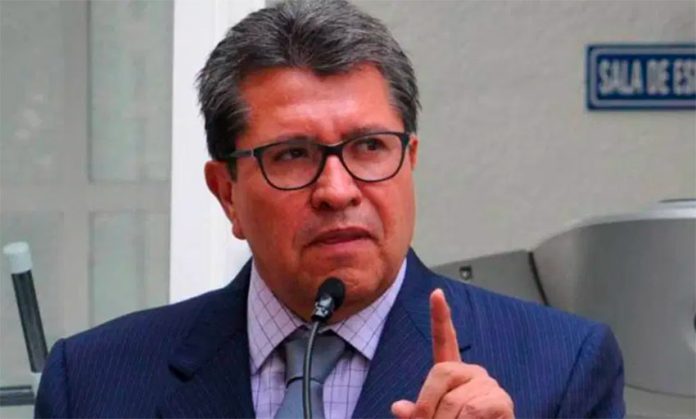A day made all the difference for Morena party Senator Ricardo Monreal, who on Monday proposed a ban on smoking in private vehicles — and a day later made an abrupt about-face, telling journalists that he had withdrawn the idea and planned to consult his constituents first.
“There are other priorities,” he told the newspaper Reforma Tuesday in an interview.
The proposal would have fined smokers who lit up inside a vehicle 14,000 pesos (US $675).
“Although the health of minors and pregnant women is also important, I am going to listen to the opinion of citizens before presenting the bill formally, as I do with controversial initiatives,” he said,
Monreal has a habit of coming up with such initiatives, which he then generally withdraws. In the past, he has made proposals for merging the regulatory bodies in the energy and telecommunications sectors, regulating social media networks, reducing bank commissions, and imposing tougher regulations on credit rating agencies.
When he proposed the idea on Monday, Monreal said he was seeking to protect minors, pregnant women, and senior citizens from exposure to second-hand smoke, adding that around 8 million people are killed each year worldwide from exposure to tobacco, and 1.2 million of them are killed by second-hand smoke.
“Passive intake of tobacco causes series cardiovascular and respiratory illnesses since the smoke from these products contains around 4,000 known chemicals, of which 250 are harmful, and more than 50 are considered carcinogens to human beings,” he said.
On Tuesday, Monreal told Reforma that despite his polarizing announcement, his plans had not yet actually translated into a concrete initiative. “We’re going to listen to citizens’ opinions,” he said. “At the moment, the priority is the attention to health and the proper dynamic of economic reactivation.”
Monreal’s controversial proposal came in the context of Mexico’s lawmakers considering 16 wide-ranging changes to the nation’s tobacco control laws, many of which seek to put new restrictions on the consumption, sale, packaging and advertising of tobacco products, as well as prohibitions on the use, import and export, sale and manufacturing of e-cigarettes and vaping products.
Among the changes being proposed is a ban on the latter in public spaces.
Proponents of the reforms point to, among other things, the high cost of Mexico’s tobacco use: according to the Pan American Health Organization, smoking-related illnesses costs the government 80 billion pesos a year (US $3.85 billion) and result in disabilities and early death for more than 65,000 persons annually.
Opponents, among which are several business associations, say the reforms would hurt small business owners and would cause a rise in black-market sales of cigarettes at cheaper prices, which would lead to more consumption by minors not subject to age verification. They also point to what they say is the irony of Mexico putting such restrictions on cigarettes when it has just legalized marijuana.
